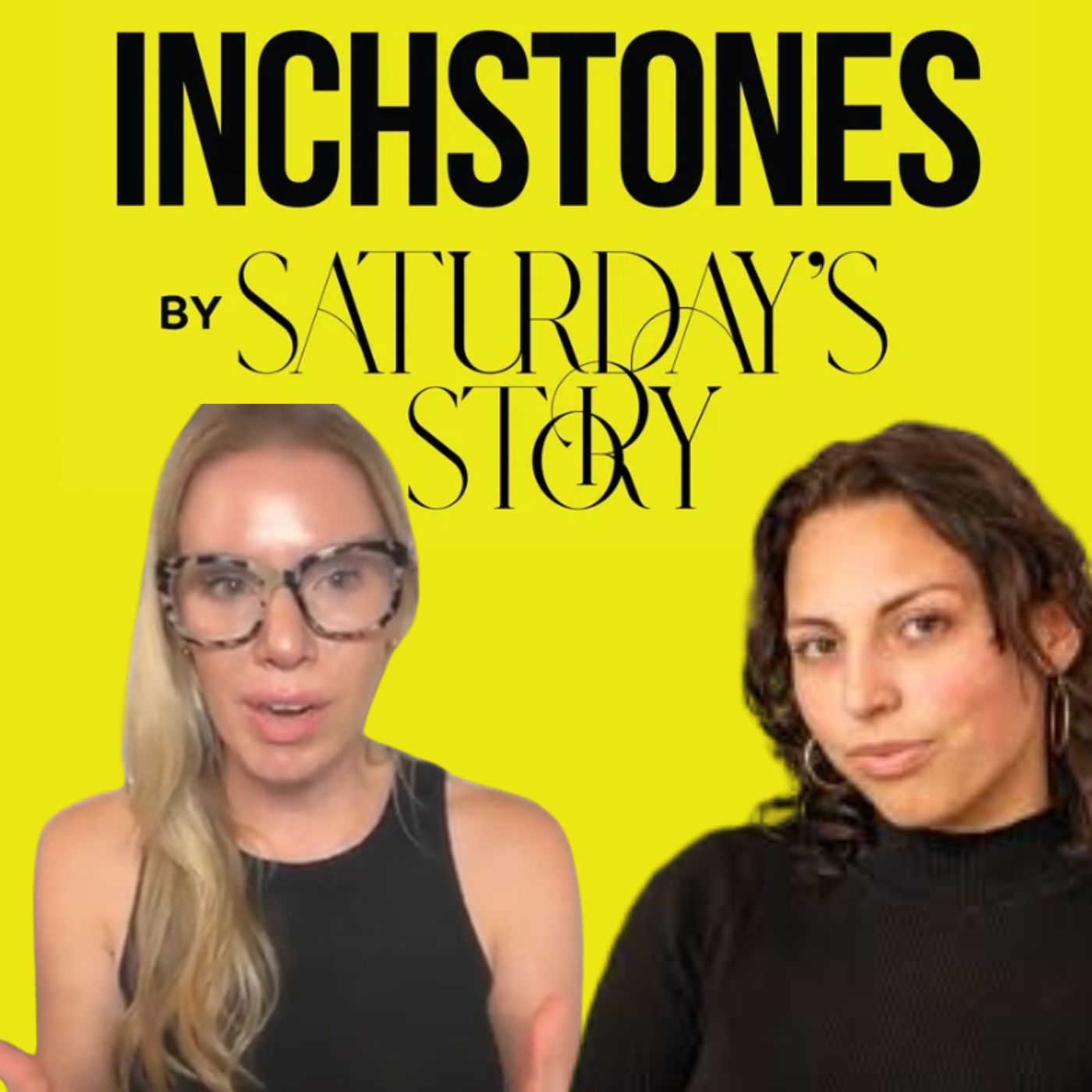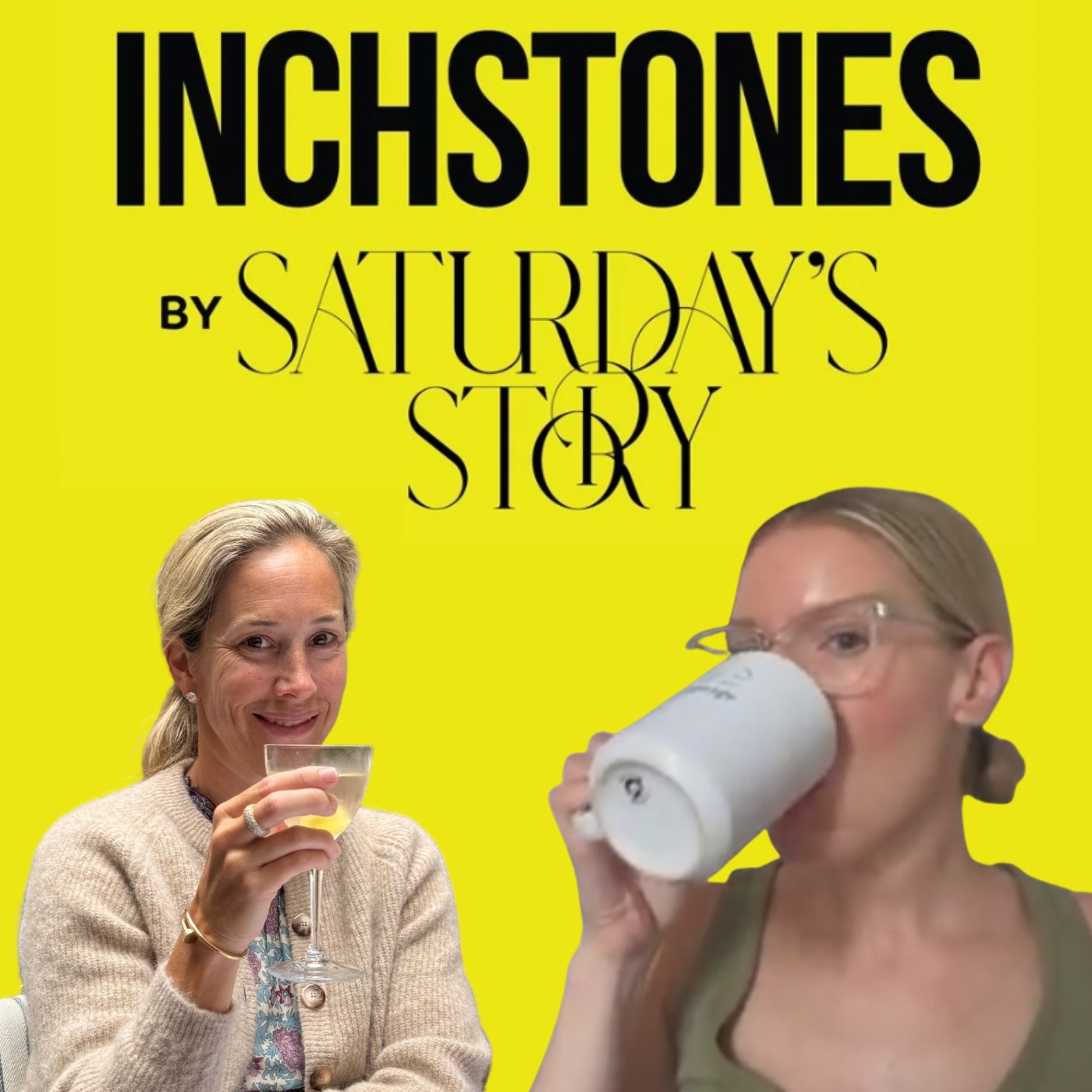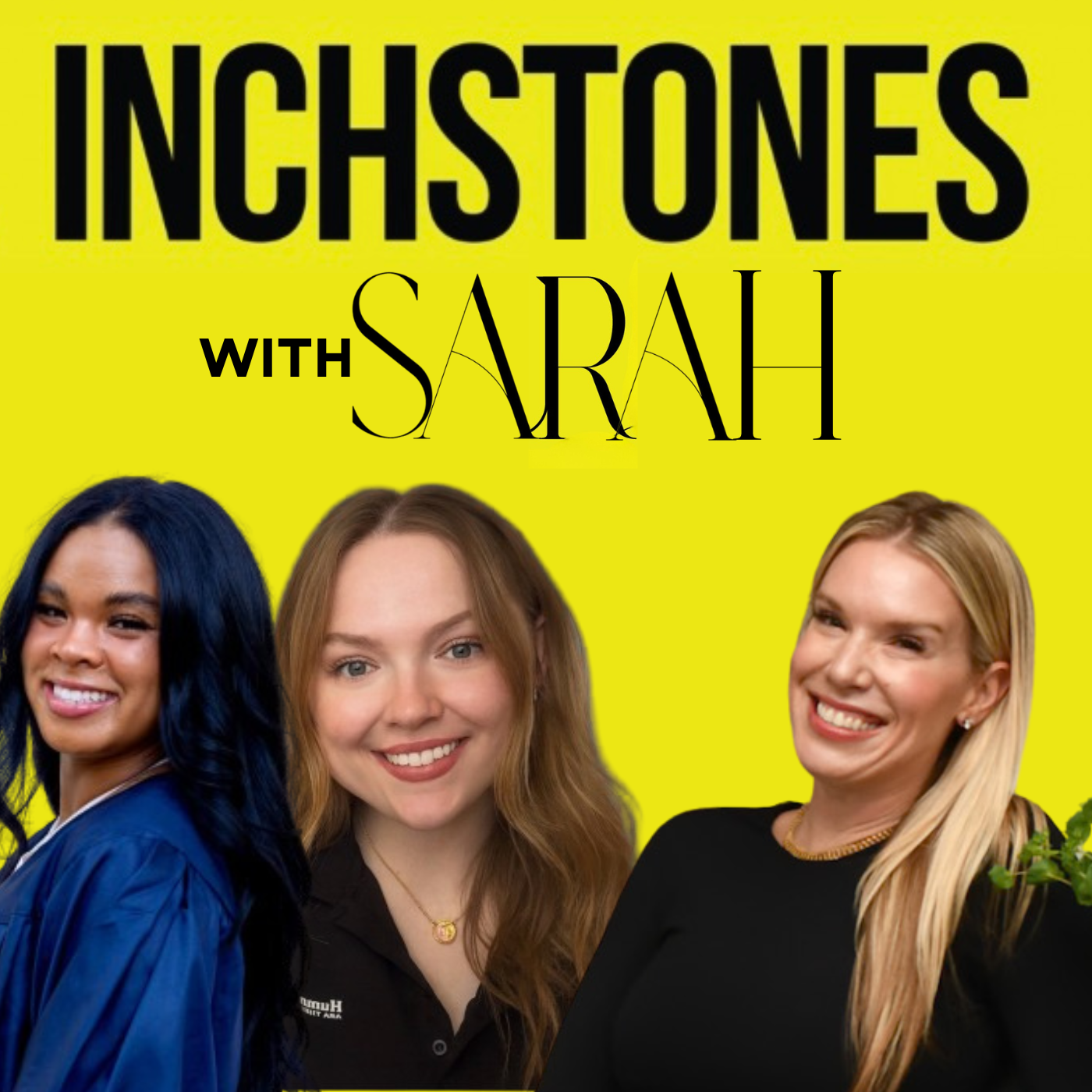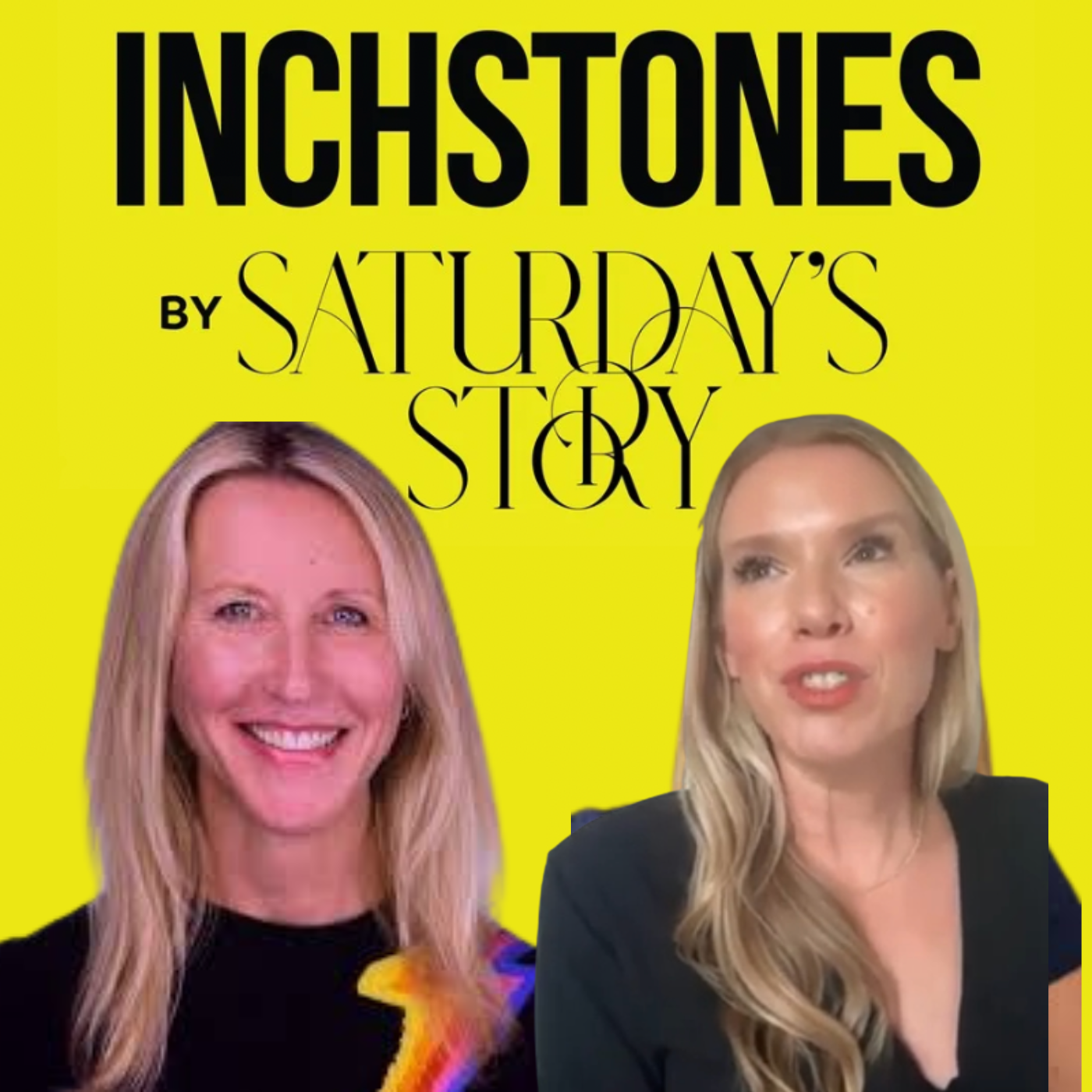Episode Transcript
[00:00:00] Speaker A: Hey, everyone. Welcome back to another episode of the Inch Jones Podcast. It will come as no surprise to you that I align so deeply with other storytellers as a mission and career. And I have Chelsea Casabona here today, a documentary filmmaker who came into my life as a documentary filmmaker to record an episode about neurodiversity in the home for PBS on me and my kids and the alignment that Chelsea and I had from sort of this macro view of life and how we share and why she and I, both independently, are doing the work to get stories out aligned so deeply. And we've kept in touch. We were able to watch the segment live when it came out last April.
And I'm just so in awe of her work because one of the fractals of sharing my life story as a mom of profoundly autistic children is because of the work that Chelsea does and her skillset and her expertise.
So I have Chelsea here today. We're going to dive in really quick about some of those whys and reasoning for the work that we do. And I'm just so thankful that she's able to be with us here on Inchtones.
[00:01:08] Speaker B: Amazing. Thank you so much for having me. Yeah. I'm so glad we kept in touch. I love the relationship that spud out of. Yeah.
[00:01:16] Speaker A: So one of the things we said before I press record was what makes documentary filmmaking work powerful in its essence. And you gave this most beautiful example. And I said, stop, let's record that. About deeply being vulnerable to the truth.
[00:01:31] Speaker B: Well, I hope I can encapsulate it like before.
I think it really takes a willingness from both sides. Like, not everybody is necessarily willing to be open and vulnerable for a documentary film, and that's fine. They don't need to have a documentary made about them. But I think the folks who feel comfortable being vulnerable and open about the challenges they face make really good documentary subjects because they can connect with people. When people. Audiences watch documentary films, they want to feel seen as human beings. And I think that takes a real willingness from participants to be open about the struggles they have, because that's like what being human is, is overcoming obstacles. And it's not always the negatives. But articulating to people how you navigate through those challenges is how we connect with other people, I think. And so that's kind of the folks that end up making really powerful documentary films.
[00:02:26] Speaker A: That's what, you know, our conversation from the second you came into the home, you were able to share with me about your own life as being an aunt. And, you know, how family life, whatever, you're able to like witness and absorb and just take in.
If you can utilize that from a, like a narrative lens, it just helps promote your mission. And I think one of the things that has always resonated so deeply with me when I really get quiet is that like even as a little girl, I loved hearing stories. And so to your point, like the. You were filming and asking questions, I was staying open, but also creating that like two way street of understanding. So you were able to see my humanity and motherhood in a way that maybe wasn't even put in the documentary, like that five minute glimpse, like. But because you were able to take that in as you and what you know to be true about the power of stories, it allowed you to craft then this five minute glimpse into our world with a better, more precise angle leading from deep truth, deep realities. And also knowing what you as a woman have lived too, and that humanity behind it.
[00:03:34] Speaker B: HE SING yeah, and that's like the, the funny part, you know, we film for hours. I don't know how long I was over there, maybe like six hours.
[00:03:41] Speaker A: Get your exercise in. You walking down the street backwards.
[00:03:44] Speaker B: I always get my work cutting, but.
But yeah. So whenever I film with people and I tell them it's gonna be like a five to eight hour day, I think they're like, why? And how? Because it's just gonna be condensed to like three to five minutes. But it's exactly what you said. Like if I'm able to spend the time with people, it really helps inform the edit and it helps me understand, like, because if I'm there for five to eight hours, I'm hearing what you're repeating in your daily life. Like not intentionally, just out of like the natural way that you're existing. And I'm like, okay, she's said this. Or like this has happened multiple times. So like that should go in there because this is like a recurrent thing. So that's why it's so important. Yeah. We spend so many hours filming and it gets so condensed. But I really love getting to know folks and I felt like I, I felt like we connected so well during those hours and it, yeah, really just.
[00:04:35] Speaker A: Yeah, I, you know, and again, why this conversation is so important, you know, for profound autism and, or any sort of major life challenge is not political. Right. It's like, it's part, it's not partisan. And I think realities and truth need to be witnessed by people that don't experience it, have never known intimately what it's like to Be a quadriplegic per se, but I take in the stories of someone to sit as close as I can to what their lives actually are. To have a, um, an empathy, a deeper sympathy for, for their, their pain, suffering, but also the highs and the joys that they experience too. And that's what I feel is so ripe right now for our country, is that we need to go even closer to the real truth. Like not, not to have, not to say, like everyone needs to experience my month of my motherhood, but to, to ask and stay as close as you can to get a really window into the realities.
Because the more that we just talk and keyboard warrior about these almost made up narratives of the story we tell ourselves about other lives, the more we actually get away from the truth of their lives. And that's why I just, my heart, like, I was so glad that we kept in touch because your work is so important in that, in that way you're giving everyone the glimpse. You're giving everyone that window in. And I think that because of who you are, your life and your mission and any work that you do going forward is going to keep giving those glimpses.
I guess all that to say, I'm just so proud of you for finding that work. I mean, it's just true because I've been working with different people going, I don't know what I don't know. I'm not a documentary filmmaker.
[00:06:16] Speaker B: Like, I love documentaries.
[00:06:18] Speaker A: I've always loved it, but I don't know what I don't know. And we have to use each other and use these skills, skills through our vulnerable work to create that visibility.
[00:06:26] Speaker B: Exactly. And that's what I really love about documentary filmmaking also. And why I went into it because before that I was doing work in nonprofit and so I was working with different vulnerable communities. And when I met the folks on the ground, like, I realized, like you said, there's so many narratives online, like what people write and their opinions and whatnot. And then when you meet people on the ground, you're like, oh, this person isn't. Like, it's not black and white. There's so much nuance in people's lives and why they are, are the way they are. I think that's what's really great about documentary filmmaking. Like you show, like, here's this person who you might have had a preconceived notion about, but actually here's the ways they relate to you as a human being. But here's the way, like they're complicated. Like, even though they have these identities and you might have assumed this, like here are some just nuances that. That complicate the story. And in all my work, like with editors and like advisors on, on my films and stuff, that's the conversation we're always having. We're like, how do we show this person is more complicated than that? And that's what we try to pull out in different scenes. And I find it's easier with longer form documentaries. You have more time and space.
But that's my favorite part is like trying to show that we are super complex and the reasons we are the way we are are so unique. And that's what we try to accomplish.
[00:07:43] Speaker A: I think, I think too, one of the coolest things I'm just realizing now about the work of a documentary filmmaker is how present you must be while filming. And it, and it aligns so deeply with my life that I live with my kids because I have to be so present because of their needs and their support needs. And that, that's an interesting.
That's an interest in who is simply taking in our story. You still have to be so deeply present to the. To what is even just unfolding in front of you.
You know, the books out there, you know, the Eckhart Tolle, the Power of now, the, you know, mindfulness practices. These days, it's all about staying present. And I guess that's what makes me feel so thankful that you got to absorb us for a day. But like you reflected back the idea of presence. And another really big genre that I hope to explore in my own work, in sharing about the live that the life that I live with my kids is. It all goes back to presence. Because the presence is the truth and that's the reality. And it's all we ever have. We never know, you know, what is the next thing to evolve. But by staying open to it, you allow for the flow and the.
It's not static. Nothing, none of this is static. It's. It unfolds. And that's, I think, the beauty of the work that you do and what you're able to capture. And I just wanted to say, you know, thank you again for doing this kind of work.
I don't have much time today because I know you have to go. But in your view, what. What would be, what do. What do you feel like your best? Like statistics alone can never tell a story. You know, when it comes to shifting perception on things, that's what I really am hoping to do in my own work is shift the perception from needing to fix Children with profound autism. Where do you feel like your work aligns with that across all different kind of categories?
[00:09:36] Speaker B: Ooh, that's a good question. You know, like the first documentary film I did before filming with you was, it was a 23 minute film about Liana Mutia. She's a blind judo athlete who was on her way to the Paris 2024 Olympics or Paralympics. And your, your question about like needing to fix to just giving insight and showing how people live really aligns actually with the film I did with her because, you know, I came into her life, I didn't know anything about her history and, and what have you. And I was interviewing experts who have worked in the Paralympics for years and years.
I was, I wanted to be so cautious, like not to have stereotypes in the film and to show things authentically, but also like just kind of like negate people's preconceived notions. And every time I would ask that question to Leanna or to judo trainers who work with blind athletes, they're like, we, like, we don't want sympathy. We want to show that we can do these things just like other people can do these things and we don't need to be fixed. We are existing and existing well and living a great life and this is how we're doing that. So I feel like it's so cool that you asked that question because. Yeah, in the film I did before it was like that too. It was like, oh, she's not trying to like fix her eyesight. She's trying to accomplish this amazing feat that most able bodied people like can't do. And also she's like a computer coder and she works in software development, which is also a lot of able bodied people can too.
[00:11:04] Speaker A: Well, that's the thing is like, it's like we again, nuance and complexity. That's what this all comes down to. And I think the more we can sit in sort of the maybe uncomfortable like, like medium of knowing that like there are so many more angles to every human life and how we absorb and what we take in and what we think and that we need to just stay open to that. My biggest charge of the past year has just been to stay curious. Like, curiosity never is wrong when it comes to leaning in about stories of other humans. And your work just aligns so much with that. So I'm just so thankful and I wish you all the success. I can't wait to see what's, what's next for you. And I'll be sure to link all of your work at the bottom of the episode when this goes live.
[00:11:46] Speaker B: Thank you so much. I wish we had more time, but.
[00:11:48] Speaker A: I know, I know. But, hey, listen. Thank you, women on the go.
Thank you so much. And until next time, on the Inch Jones Podcast.




